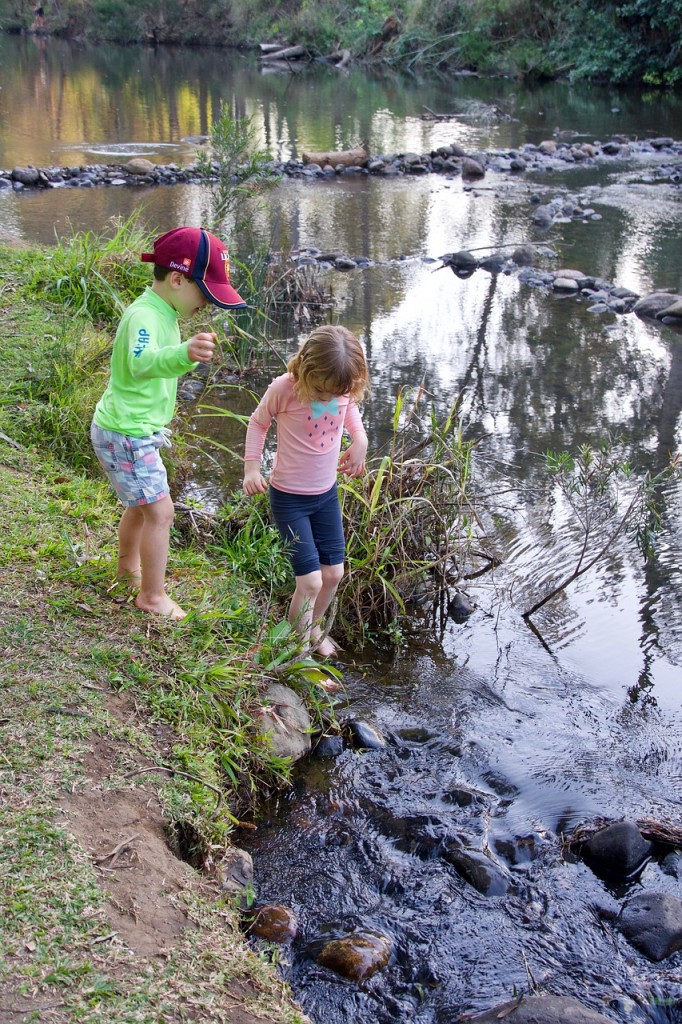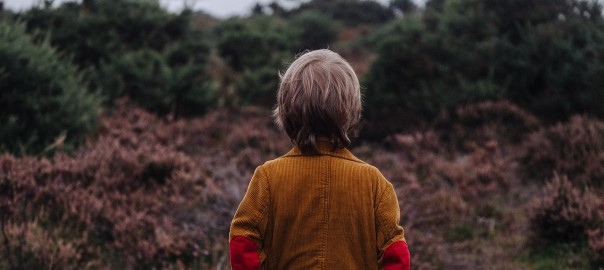At dinner one night, my almost 13 year old said that a friend of his was using a knife, and the father got angry at him and told him he’d punish him if he caught him using it again.
(I suspect this friend probably wasn’t docilely slicing cucumbers for dinner. Whatever the case was, my son was surprised.)
He then indignantly continued, “My little brother turned on the fire and cooked his own food when he was four (he was five, actually) and saws away on boxes with knives and you don’t say anything, and my friend isn’t even allowed to use a knife?!?”
I laughed and said if people heard him they might accuse me of being irresponsible.
He responded, “No, it’s good you let us do things.”
Then another son commented about an instance I once referenced from The Continuum Concept, by Jean Liedloff. I read this book many years ago and don’t remember most of what I read, but one thing was so powerful and thought-provoking that it stayed with me all this time.
Jean visited a native village, and noticed that machetes were left laying around and little babies were allowed to play with them. Astonishingly (to our Westernized eyes, anyway) no one ever got hurt, other than an infant of Westernized (anxious) parents.
There were also pits that the babies crawled around, sometimes seeming oblivious to them and sitting with their backs right next to the edge. But she recognized that they had the awareness of themselves in space and these infants never fell in.
How could that be? How could parents be so extremely relaxed and oblivious to serious dangers their children were facing? Why didn’t they put away the machetes until the kids were old enough to be taught to use them safely, and fill in or cover up the pits?
Were those situations inherently dangerous, or was it the parents attitude toward them that created the danger? It gave me a lot to think about.
Kids need space to try new things, to stretch their wings, to learn new skills and to make mistakes. And there’s precious little space for kids to do that nowadays. Even if parents want to give their kids more freedom and independence, they have to be concerned that strangers will call the police or social services for letting their children walk somewhere alone, play in the park alone or the like.
So even those parents who theoretically are willing to let their children explore and expand their limits are often too fearful of the consequences to allow it.

A couple of weeks ago I took a couple of my sons with me on a womens’ hike. (Once a year there’s a family hike, and last year my boys accompanied me. The leader then generously told me my boys were welcome to come anytime!)
So there we were, hiking away, when we came across an interesting ancient structure and well. Naturally, the boys wanted to get closer and check them out.
Several adults kept telling my boys to be careful, not to climb there, not to go there, because it’s dangerous. “Stand back, don’t get so close, go down, you could fall, you could get hurt!” I assured more than one woman that not only was I watching them but that they were safety conscious and wouldn’t do anything risky.
It seems that we adults can’t resist projecting our own fears onto kids. We think of every single possibility of something that could go wrong (and we’ve all seen enough articles and news reports of pretty much every horrible possibility), and then we think we have to warn our kids as if it’s all a likelihood for them that moment.
Can you see how adult fear diminishes the opportunities for a child to develop faith in his own ability?
As problematic as screen time is, it has created a solution for how to keep the children ‘safely’ occupied, while at the same time it’s created a generation of physically inactive, socially uncomfortable and emotionally insecure children.
At the end of the hike, we came upon a large well.
The water was probably about ten feet across, our boys know how to swim, and there was a welded iron ladder leading down into the water by which a person could climb in and out. There were no currents, no waves, no sharks, and I was standing close by – it was actually kind of similar to a small swimming pool. When they asked me if they could go in, what do you think I said?
I told them absolutely not. Not because it was dangerous, because it wasn’t. But because others would think it was and would be horrified if I allowed that.
As we walked away from that well, I thought regretfully about the many generations of children across the ages who were allowed to do so much more than our kids can. The idea that kids at the ages of my boys (almost ten and 11.5) needed constant monitoring and admonitions to stay safe would have been ludicrous.
I would like to think that if I hadn’t been concerned about the reactions of others that I would have allowed our boys to go in the water.
Even if I had, it wouldn’t be because I’m so chilled. I’m not. People think I’m more relaxed than I am by the things I allow, but like most of us, I’m a product of our environment.
What helps me set aside my own worries is reminding myself how important it is for kids to have opportunities for expansion, exploration and development, and remembering those little babies who grew up being trusted and responding accordingly.
Avivah
